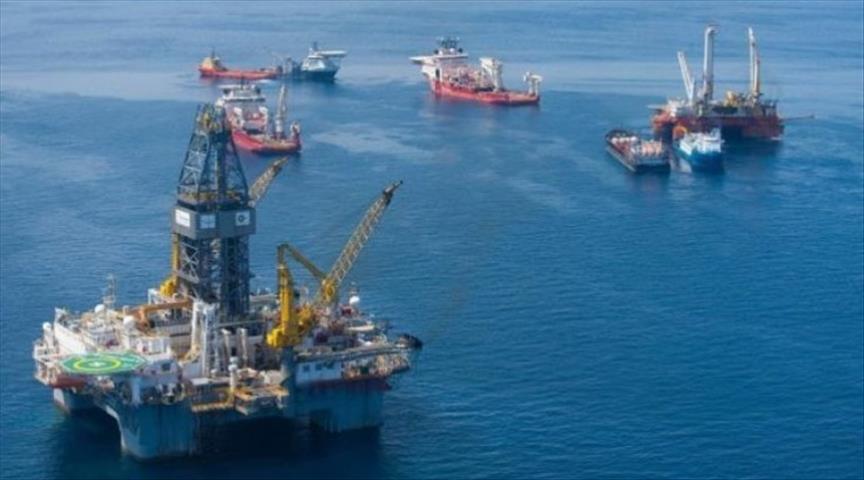The newly agreed Trans-Pacific Partnership (TPP) trade deal will enhance the energy security, trade and cooperation between 12 Pacific Rim countries, an expert said Tuesday.
After months of negotiations, the countries -- the U.S., Australia, Brunei, Canada, Chile, Japan, Malaysia, Mexico, New Zealand, Peru, Singapore, and Vietnam -- reached a deal on Monday that could create one of the world's largest free trade zones as the partnership represents about 40 percent of global gross domestic product, while the countries need to ratify the deal before it goes into effect.
'TPP should enhance the energy security of the signatory countries,' Tom Cutler, President of Cutler International, LLC, an energy consulting firm, and former Director of the Office for European and Asia Pacific Affairs at the U.S. Department of Energy, told Anadolu Agency.
'TPP also includes energy equipment, trade in fossil fuels like oil, gas and coal, renewable energy, and environmental clean energy technologies,' he added.
In terms of natural gas, the deal provides opportunities for both importing and exporting countries. The U.S., Canada and Australia are planning to export increased supplies of liquefied natural gas (LNG) to the Asia-Pacific region in the coming years. Although Canada is lagging behind in its gas export projects due to slow regulations and low investment, the U.S. and Australia are aiming to enter the Asian gas market with new supplies in the near term and to have a strong market presence in the next decade.
After its shale revolution, the U.S.' total dry natural gas production increased by 35 percent from 2005 to 2013, reaching 24.4 tcf (690 bcm), according to the U.S. Energy Information Administration's (EIA) 2015 Annual Energy Outlook. EIA projects this amount to rise by 45 percent until 2040, expecting dry natural gas production to reach 35.5 tcf (1,000 bcm) by then.
'Due to its low production costs, the U.S. gas has a little bit of a price advantage, compared to other gas suppliers in Asia-Pacific, even with transportation costs factored in. The TPP will make it easier for other countries in the region to import American gas because there will be less regulatory and approval hurdles, but the real question is by how much,' Cutler said.
Currently, there are eight LNG projects the U.S. Energy Department has approved to export domestically produced gas to countries the U.S. does not have a free trade agreement with. The earliest of them, Cheniere Energy's Sabine Pass project in the state of Louisiana, will begin LNG exports at the end of 2015 or beginning of 2016. The project will have the capacity to export 2.76 billion cubic feet (83 million cubic meters) per day.
However, an issue for exporters is the oversupply of gas in the Asia-Pacific market, and the falling gas prices because of that.
The glut of gas supply is a great advantage for buyers, such as Japan, which is the biggest LNG importer in the world. However, Tokyo's previous gas purchase commitments make the future blurry for additional gas demand from the U.S.
'In the case of Japan, they already have all the gas that they need to contract for with the U.S. The Japanese were able to contract all the gas supplies they needed at the time,' Cutler said.
Due to the gas glut and high competition in Asian market, the expert stressed 'TPP may not have the same impact it otherwise would have,' but said the deal provides energy trade cohesion for its signatories, and its net effect will enhance the countries' energy security.
'By entering into this agreement through very difficult negotiations and compromises, the deal brings those group of countries together in a strategic way with a sense of economic cohesion and political accomplishment. They are in this trade basket together. It may not materialize into anything concrete beyond that, but it enhances energy security, and promotes trade in energy goods, services and technologies. So, the net effect is positive,' Cutler explained.
Meanwhile, Malaysia can become one of the countries that would not ratify the deal. Malaysia's secretary-general of the Ministry for International Trade and Industry (MITI) told Anadolu Agency that the multilateral trade pact would take some time to be activated -- -- that's if the country chooses to opt in at all.
'It will take another two years before it comes into force, subject to Malaysia deciding to sign,' Tan Sri Rebecca Fatima Sta Maria said.
By Ovunc Kutlu
P Prem Kumar contributed to the story from Malaysia
Anadolu Agency


